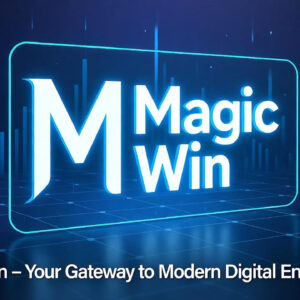How Smart Manufacturing Software Solutions Are Powering the Direct-to-Consumer Revolution:
For decades, manufacturers relied on distributors and retailers to get their products into customers’ hands. But that model is crumbling fast. Margins are thinner, customer loyalty is unpredictable, and supply chains are strained by global disruptions.
Now, many manufacturers are asking: Why not sell directly to the end consumer?
The problem? Most traditional systems weren’t built for that. Legacy ERP tools, manual production planning, and outdated communication between departments create silos that make direct sales nearly impossible to manage efficiently.
That’s where smart manufacturing software solutions are reshaping the landscape. These intelligent systems connect production, logistics, inventory, and sales into a single streamlined flow, helping manufacturers shift from factory-focused operations to consumer-focused businesses.
Let’s unpack how software is transforming manufacturers into agile, data-driven D2C (Direct-to-Consumer) powerhouses.
From Bulk Orders to Personalized Demand: The Shift Manufacturers Are Facing:
In the old setup, manufacturers produced large batches based on forecasts, not real demand. Retailers placed bulk orders, and the factory delivered. But the D2C model flips that logic completely, now consumers drive the demand directly.
This shift introduces new challenges:
- Managing smaller, frequent orders instead of large wholesale batches.
- Tracking individual customer preferences and ensuring quick turnaround.
- Handling logistics and fulfillment directly instead of relying on third parties.
To survive this shift, manufacturers need digital agility, and manufacturing software systems are the engine behind that agility.
Connected Data: The New Core of Manufacturing Success:
Traditional ERPs were good at managing internal data – production schedules, material inventory, costs – but they often stopped there. To sell directly to consumers, manufacturers need systems that connect data across the entire value chain, from production to delivery.
Modern manufacturing ERP solutions do exactly that. By integrating data from online sales channels, customer feedback platforms, and logistics providers, manufacturers gain real-time visibility into demand trends.
Imagine this: A customer places an order on your e-commerce site. Instantly, your ERP updates production schedules, checks material availability, and triggers fulfillment, all without human intervention. That’s not futuristic, it’s the reality of smart manufacturing software today.
The result?
- Reduced order delays through real-time synchronization.
- Lower waste and overproduction by aligning production with actual sales.
- Improved customer satisfaction with faster delivery and transparent tracking.
Automation: The Secret Weapon for D2C Efficiency:
Manual systems can’t keep up with D2C complexity. From managing hundreds of SKUs to fulfilling individual shipments, every step demands speed and precision.
Factory automation software brings this precision to life. With IoT-enabled machines and AI-driven analytics, manufacturers can optimize production lines based on live demand data.
For example:
- Robotic process automation streamlines repetitive tasks like labeling and packing.
- AI-driven production planning software predicts when to scale production up or down.
- Smart sensors track machine performance, ensuring minimal downtime.
This automation doesn’t just boost output, it makes customization at scale possible. Manufacturers can now offer personalized products while maintaining efficiency, something that was unthinkable in the traditional setup.
Building Agility with Cloud-Based Manufacturing Management Software:
When manufacturers decide to go D2C, they often struggle with disconnected systems: one for inventory, one for accounting, another for e-commerce. These data silos cause errors, delays, and missed opportunities.
Cloud-based manufacturing management software solves this by uniting every function under one digital roof. From procurement and production to online sales and delivery, teams can collaborate seamlessly in real time.
Key benefits include:
- Scalability: Add new products or sales channels without major reconfiguration.
- Mobility: Access dashboards and data from anywhere, ideal for distributed operations.
- Data security: Modern industrial software solutions use advanced encryption and compliance protocols to protect sensitive data.
With this integration, decision-making becomes faster, operations more transparent, and scaling a natural next step rather than a struggle.
Predictive Intelligence: Turning Data into Consumer Insights:
Selling directly to consumers means understanding them deeply – what they buy, how often, and why. That’s where industrial software solutions come into play.
By analyzing production data, website analytics, and consumer behavior patterns, AI-powered tools can forecast demand more accurately than ever before.
Use cases include:
- Predictive maintenance: Reduces downtime by identifying machine issues before they occur.
- Demand forecasting: Ensures production aligns with real consumer interest.
- Smart inventory management: Prevents stockouts or overstock situations.
Manufacturers who embrace these capabilities can personalize offers, optimize production, and even launch new products faster – backed by real data, not guesswork.
Overcoming the Common Roadblocks to D2C Transformation:
Despite the clear advantages, many manufacturers hesitate to go direct because of challenges like:
- Lack of digital infrastructure
- Fear of disrupting existing B2B relationships
- Complexity of managing e-commerce and fulfillment
However, modern manufacturing ERP solutions are built to integrate gradually, without disrupting existing workflows. Manufacturers can start small, digitize production planning first, then expand into order management and online sales integration.
In other words, it’s not about overhauling everything overnight, it’s about building digital maturity step by step.
Why the Future Belongs to Digitally Empowered Manufacturers?
Direct-to-consumer isn’t just another sales strategy; it’s a transformation of the manufacturing mindset. Instead of producing for distributors, companies are now producing for people, real consumers with individual preferences.
And the winners in this new landscape will be those who:
- Adopt smart manufacturing software solutions to stay connected and agile.
- Use automation and AI-driven analytics to optimize production.
- Build digital ecosystems that align sales, logistics, and production.
Software isn’t replacing the human element, it’s amplifying it. By freeing teams from repetitive tasks, it allows them to focus on innovation, quality, and customer experience, the very things that make D2C successful.
Frequently Ask Question(FAQs):
1. How does smart manufacturing software help manufacturers sell directly to consumers?
Smart manufacturing software connects production, inventory, and sales data in real time. It automates order processing, adjusts production schedules, and manages logistics, making it easier for manufacturers to handle direct consumer orders efficiently.
2. What is the difference between traditional ERP and manufacturing ERP solutions?
Traditional ERP systems focus on internal operations, while manufacturing ERP solutions are tailored for production environments. They include modules for factory automation, production planning, and integration with e-commerce platforms, critical for D2C operations.
3. Can small or mid-sized manufacturers benefit from D2C software systems?
Absolutely. Cloud-based manufacturing management software offers scalable, cost-effective solutions that allow small and medium manufacturers to compete directly with larger brands by improving efficiency and responsiveness.
4. What kind of automation tools are most useful for D2C manufacturing?
Factory automation software that supports robotic systems, smart sensors, and AI-driven production planning tools help manufacturers handle high variability in orders without losing speed or accuracy.
5. Is transitioning to D2C risky for manufacturers with existing distributor relationships?
Not necessarily. Many manufacturers adopt a hybrid model, continuing B2B operations while gradually introducing D2C channels. Software integration ensures that both models run smoothly without cannibalizing each other.
6. How does predictive analytics improve manufacturing outcomes?
Predictive analytics enables data-driven decisions by forecasting demand, identifying potential bottlenecks, and optimizing production schedules. This ensures better resource allocation and higher customer satisfaction.
7. What’s the first step manufacturers should take toward a D2C model?
Start by evaluating existing manufacturing software systems and identifying gaps. Upgrading to integrated smart manufacturing software solutions is the foundation for building a connected, customer-centric operation.
Final Takeaway:
Manufacturers no longer need to rely solely on middlemen to reach their audience. With the power of smart manufacturing software solutions, they can connect production directly with consumers – driving efficiency, personalization, and profitability.
For those ready to make the shift, now is the perfect moment to build a digitally integrated manufacturing ecosystem that delivers not just products, but experiences consumers truly value.




